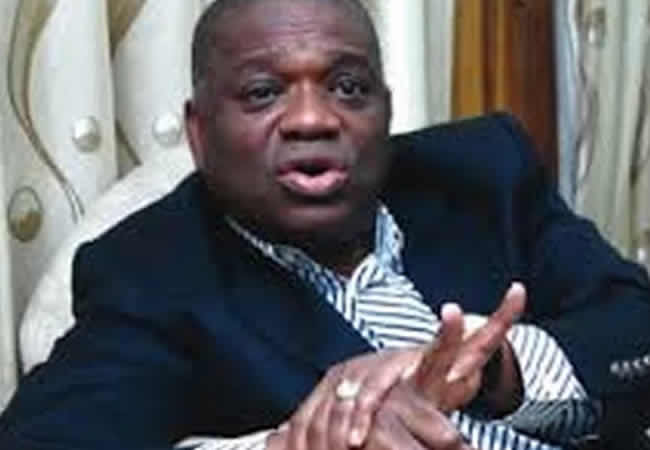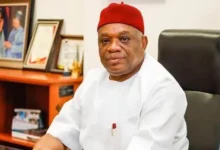
Orji Kalu’s fraud trial is halted by the A’Court as the EFCC evaluates approach
The Court of Appeal denied an attempt to reopen the N6.7 billion fraud case against Orji Uzor Kalu, the former governor of Abia State, on Wednesday. In response, the Economic and Financial Crimes Commission said it will address the weaknesses in its strategy.

Orji Kalu’s fraud trial is halted by the A’Court as the EFCC evaluates approach
According to Justice Joseph Oyewole’s ruling on behalf of the appellate court, Kalu’s motion for a new trial was denied due to the unreliability of the EFCC’s submitted records.
After the ruling, Oluwaleke Atolagbe, an attorney for the EFCC, told reporters that the commission will address the shortcomings the court had identified.
“The appeal’s merits were not discussed by the court. The issue of whether Kalu and Slok cannot be tried was not raised by the court.
The dispute’s merits remain unresolved. We have the chance to return in a suitable manner. As it is, we can still go back to the appeals court to have the case’s merits decided after implementing the court’s observations, stated Atolagbe.
On December 5, 2019, the Federal High Court in Lagos found Kalu, his business, Slok Nigeria Limited, and Jones Udeogu, a former director of finance and accounts for the Abia State Government House, guilty of the N6.7 billion allegations.
The court ordered the winding up of Slok Nigeria Limited and the confiscation of its assets to the Federal Government. Justice Idris Mohammed, who is currently a Justice of the Supreme Court, presided over the ruling. Kalu received a 12-year prison sentence, while Udeogu received a 10-year sentence.
Udeogu, however, was not happy with the verdict and filed an appeal, arguing that he had already been promoted from the high court to the Court of Appeal by the time Justice Idris wrapped up the twelve-year trial and delivered his ruling.
The Supreme Court sided with Udeogu in a May 8, 2020 ruling, overturning Justice Idris’ conviction. The court said that the constitution forbids a judge who has been elevated to a higher court from returning to a lower court to wrap up a matter that has only been partially heard.
The provision of Section 396(7) of the Administration of Criminal Justice Act, 2015, which the then-President of the Court of Appeal, Justice Zainab Bulkachuwa (retd), relied on to authorize Justice Idris to return from the Court of Appeal to the high court to conclude the trial, was also declared unconstitutional by Justice Ejembi Eko, who delivered the lead judgment of the panel led by Justice Olabode Rhodes-Vivour (retd.).
By a unanimous vote, the panel ordered the Federal High Court’s Chief Judge to transfer the case to a different judge so that the trial may start over.
Based on the Supreme Court’s decision favoring Udeogu, Kalu went to the Federal High Court in Lagos in June 2020 to request his release from prison.
Rotimi Jacobs (SAN), the EFCC’s prosecutor, stated that while he would not challenge Kalu’s request for release, he pleaded with Judge Mohammed Liman to see to it that the Supreme Court’s directive for a new trial be followed.
But Kalu filed a second lawsuit after being released from prison to prevent the EFCC from retrying him.
He argued that the ruling for a new trial only applied to Udeogu and not to him, and that doing so would put him in double danger.
Justice Inyang Ekwo of the Federal High Court in Abuja ruled in favor of Kalu on September 29, 2021, preventing the EFCC from retrying him.
The EFCC filed an appeal with the Court of Appeal, which denied it on Wednesday, citing insufficient documentation from the EFCC. The EFCC was not pleased.
“The record of appeal brought by the Federal Government was incompetent and unreliable for any court to use to grant the request of the government,” Justice Oyewole declared in his Wednesday verdict.
“The record did not have the name of the person who compiled, signed, and certified it as required by law.”











